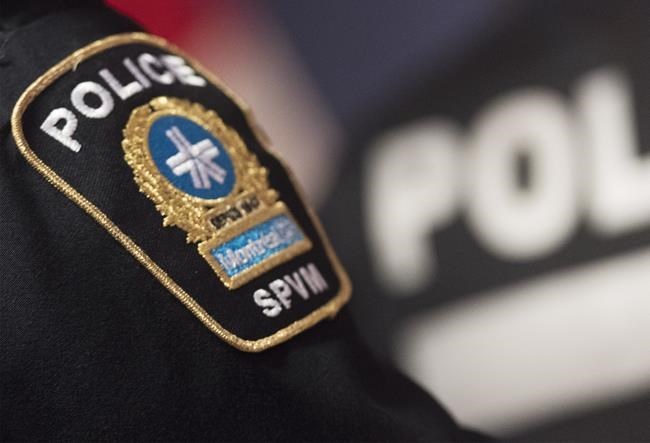MONTREAL — A Black man who was racially profiled by Montreal police during a stop in 2017 says the 30-day suspensions recently imposed by the ethics commission on two officers is significant but not nearly enough.
Errol Burke, 59, said the penalties should have been tougher. The officers, Pierre Auger and Jean-Philippe Théorêt, were found guilty by the ethics commission last October.
"I really feel there needs to be harder penalties to help dissuade this kind of, what I would call arrogant behaviour, by police against people who haven't committed any crimes," Burke told a virtual news conference Thursday organized by local civil rights group Centre for Research-Action on Race Relations.
The group said the 30-day suspensions were the heaviest sanctions imposed by the ethics tribunal for racial profiling. But it is likely the ruling will be appealed, said executive director Fo Niemi.
"It's the first time in our work that we've seen such a strong and firm decision against racial profiling," he told reporters.
Niemi cited tough language in the ethics decision, stating that racial profiling is a daily reality for visible minorities and that it contributes to "fear and humiliation, trauma, distrust of the police and expectations of mistreatment by authorities."
"The phenomenon of racial profiling is a major issue in Western societies," the ruling noted. "The Committee therefore has no hesitation in concluding that when accompanied by violence, unlawful use of force or unlawful arrest, a period of ineligibility without substantial pay is in order."
Burke had ridden his bicycle to buy milk at a local convenience store when police officers converged on him with their guns drawn on Feb. 18, 2017, in the city's Côte-des-Neiges–Notre-Dame-de-Grâce borough.
He was slammed against the door of the store before being pulled down violently to the ground and handcuffed and searched.
Police realized they had the wrong man after they assaulted Burke, who was 54 at the time. In fact, they were looking for an 18-year-old Black suspect who, aside from skin colour, didn't match Burke's description.
He was released without any apology from police.
The Montreal police force said Thursday it was aware of the police ethics ruling but wouldn't comment further. The Montreal police brotherhood, which represents the city's unionized officers, said it doesn't comment on ethics decisions.
Separately, Quebec's human rights commission has already ruled in Burke's favour and awarded him $35,000 in damages from the city as well as $5,000 in punitive damages from each officer. The city refused to pay and the case will move to the human rights tribunal later this year.
Niemi said the ethics ruling is an important decision for Burke and others who have experienced profiling.
"Resilience, determination and patience can bring very, very important results even though it is not the type of tough sanctions Mr. Burke is expecting," Niemi said.
Burke expressed frustration he had to live for years with the consequences of the heavy-handed arrest.
He said his initial ethics complaint was dismissed and only accepted after he presented video evidence that showed "just enough to see nothing police claimed I did happened," Burke said.
Burke doesn't believe it should be so difficult to get justice.
"That's why I don't think the suspension is enough, but it's what I'm going to get because that's what there, that's the system," Burke said.
This report by The Canadian Press was first published Feb. 10, 2022.
Sidhartha Banerjee, The Canadian Press



